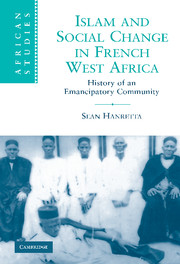Book contents
- Frontmatter
- Contents
- List of maps and figures
- Acknowledgments
- Note on orthographic conventions
- Abbreviations used in references
- Introduction
- Part One “The Suffering of Our Father”: Story and Context
- Part Two “I Will Prove to You That What I Say Is True”: Knowledge and Colonial Rule
- Part Three “What Did He Give You?”: Interpretation
- Conclusions
- Glossary
- Note on References
- Index
- Books in This Series
Introduction
Published online by Cambridge University Press: 15 December 2009
- Frontmatter
- Contents
- List of maps and figures
- Acknowledgments
- Note on orthographic conventions
- Abbreviations used in references
- Introduction
- Part One “The Suffering of Our Father”: Story and Context
- Part Two “I Will Prove to You That What I Say Is True”: Knowledge and Colonial Rule
- Part Three “What Did He Give You?”: Interpretation
- Conclusions
- Glossary
- Note on References
- Index
- Books in This Series
Summary
the central events in this story took place in the river-side town of Kaédi in the French colony of Mauritania on February 15, 1930. That morning, two men, Mamadou Sadio and Dieydi Diagana, prayed together in a mosque in the neighborhood of Gattaga. Both members of the town's Soninke ethnic minority, Mamadou Sadio was the son of one of Kaédi's Islamic scholars, and Dieydi Diagana was the French-appointed chef de village for Gattaga, Kaédi's Soninke enclave. This day, in the middle of the holy month of Ramadan, was supposed to have been a day of reconciliation, for the two men had been on opposite sides of a conflict that had unsettled Kaédi for months and were praying together to demonstrate their commitment to peaceful coexistence.
The conflict had begun the previous August 1929, when a young man named Yacouba Sylla arrived in town and began preaching a message of religious and social reform that took Gattaga by storm. A Sufi teacher, Yacouba Sylla had incurred the hostility of the local representatives of the French Empire and the disdain of Kaédi's elite by calling for radical changes in social and religious practice and by claiming authority out of proportion to his age and his rather minimal formal education. He claimed instead to derive his authority from a controversial holy man named Ahmad Hamallah, from Nioro in Mali, who at the time was being detained by the French administration.
- Type
- Chapter
- Information
- Islam and Social Change in French West AfricaHistory of an Emancipatory Community, pp. 1 - 26Publisher: Cambridge University PressPrint publication year: 2009

